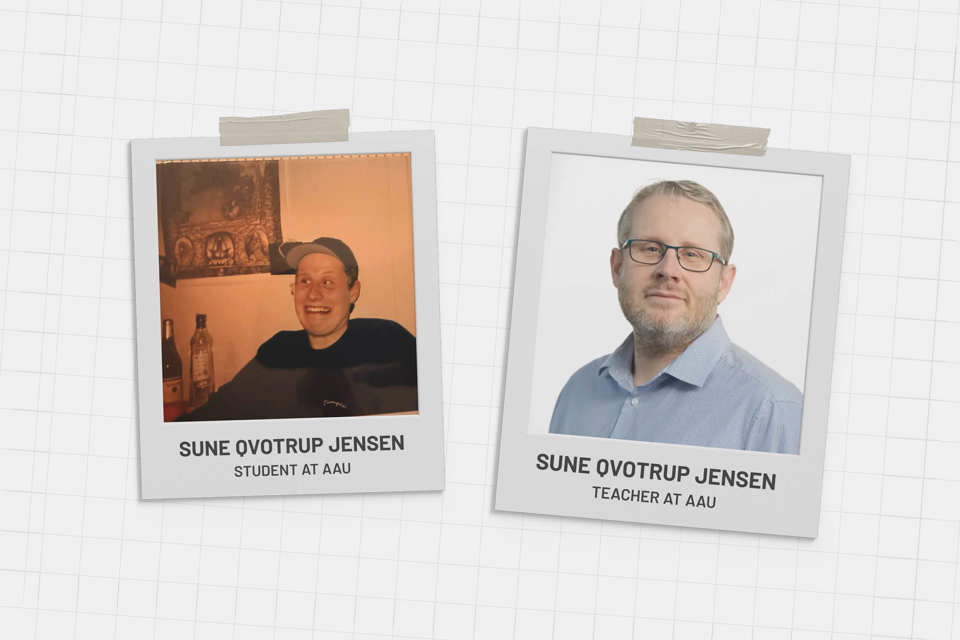It was by no means the result of a well-thought-out career plan when Sune Qvotrup Jensen started at AAU in 1995. His choice of programme, on the other hand, was motivated by a rather general interest in politics and social conditions. He also believes that the fact that he ended up as a sociology professor was a bit of a coincidence.
His message to the many new students who recently started their studies at AAU is clear: The vast majority do not have a grand plan or control of everything.
"It has become a narrative in society, and it can look like this on social media. That everyone has entered their first-choice programme and has everything under control. But in reality, many students probably do not feel this way. It's just not that cool to admit it out loud, and therefore the people who speak are typically the ones who have everything under control. So it starts to sound like it applies to everyone," says Sune Qvotrup Jensen.
"In sociology, this is classic pluralistic ignorance," he adds.
Group work was a challenge
Sune Qvotrup Jensen himself remembers his encounter with the university as a strange, slightly surreal experience. The university's culture was very different back then, and Sune Qvotrup Jensen remembers that there was a lot of drinking and partying.
"I didn't find the change from high school to university problematic. Academically, I didn't find it difficult. On the other hand, I thought that the group work could be challenging," says the professor.
At the beginning of the new academic year, Sune Qvotrup Jensen and his fellow students were put in groups of six to seven people. He remembers that they were very different types of people and came from very different backgrounds. But even though it was difficult, they had to make the collaboration work.
"Being able to collaborate with people you don't necessarily love or have a personal chemistry with is a really important experience and a skill to take with you in your working life. In the workplace, we typically don't choose our colleagues," he says.
Preferably a little difficult
For Sune Qvotrup Jensen, the best teachers were those who challenged him academically. Teachers who made demands, but also took his perspectives and points seriously.
The professor believes that his own experiences as a student have had an impact on the way he teaches.
"I try to convey the material vividly in a way that is accessible to a broad target group. But every class session should also include something that challenges the students and is a little bit difficult," he says.
The professor explains that he might also include some particularly difficult concepts or perspectives that are a little beyond the syllabus and what they ‘need to know’. Something that is more ‘nice to know’. It’s not certain that all students understand everything, but I think that they often take more with them than even they realize. And there must also be something for the top 10 percent, the professor believes.
When Sune Qvotrup Jensen was a student himself, student participation was not a major part of lectures. It was usually the teacher who stood and spoke, and then the students could ask questions at the end.
Today, the professor himself tries to teach in a way that is more actively inclusive and more dialogic. For example, through small exercises.
"It is clearly my experience that the students get more out of teaching this way. There is also clear scientific evidence for this, if you ask the learning researchers, so it's not just my own feeling," says Sune Qvotrup Jensen.
